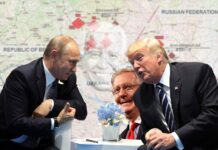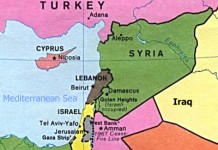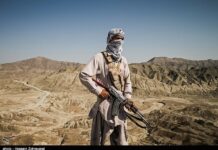 Tribal and military leaders in eastern Libya have declared semi-autonomy for their oil-rich region at a meeting in Benghazi. The powerful eastern tribes of Ubaidat, Mughariba and Awajeer attended the meeting, including the commanders of the Barqa Army, made up of 61 eastern militias.
Tribal and military leaders in eastern Libya have declared semi-autonomy for their oil-rich region at a meeting in Benghazi. The powerful eastern tribes of Ubaidat, Mughariba and Awajeer attended the meeting, including the commanders of the Barqa Army, made up of 61 eastern militias.
The declaration does not constitute a law, but is a declaration of intent. The move has caused friction with the National Transitional Council in Tripoli that has called the move a ‘dangerous’ and ‘blatant call for fragmentation’. Fathi Baja, head of the NTC’s political committee stated,
“We are against divisions and against any move that hurts the unity of the Libyan people.”
Hundreds of people gathered for the Congress of the People of the Cyrenaica, which was held in the outskirts of Benghazi. The conference announced that it wanted to have its own parliament, police force, courts, and capital in Benghazi, while foreign policy will be handeled by the federal government.
Ahmed al-Zubair, leader of the governing council, promised to protect the rights of people in the region. However, he added that, “Libya will not be divided. It’s one nation’. Cyrenaica was marginalized and neglected under Qaddafi, who focused much of the development in the west.
The United Nations has recently stated that Libya is still in turmoil. According to UN Support Mission, in the south, half of the population had to fled Kufra, where clashes erupted between al Ziwa and Tabu tribes. The clashes indicate that the newly found government is struggling to unify multiple militias, enforce security and disarm people. UN has reported serious humanitarian issues in Libya with lack of hospitals for the injured.



